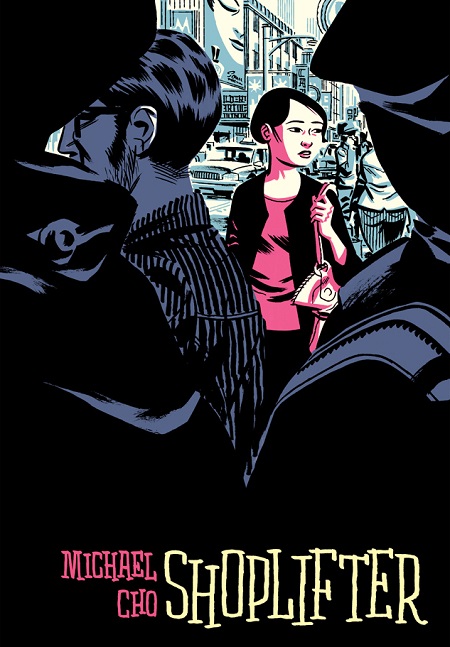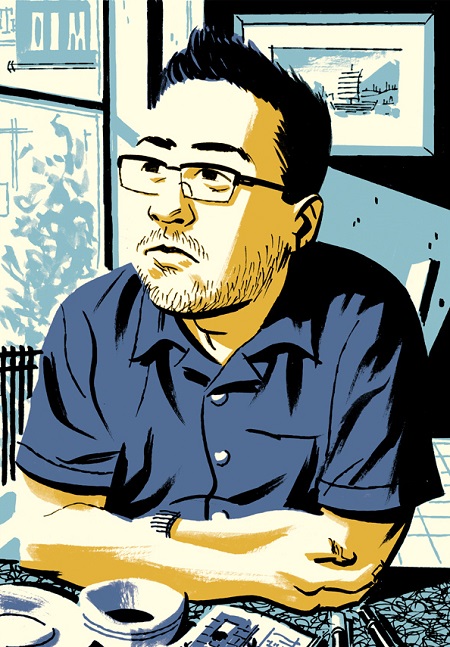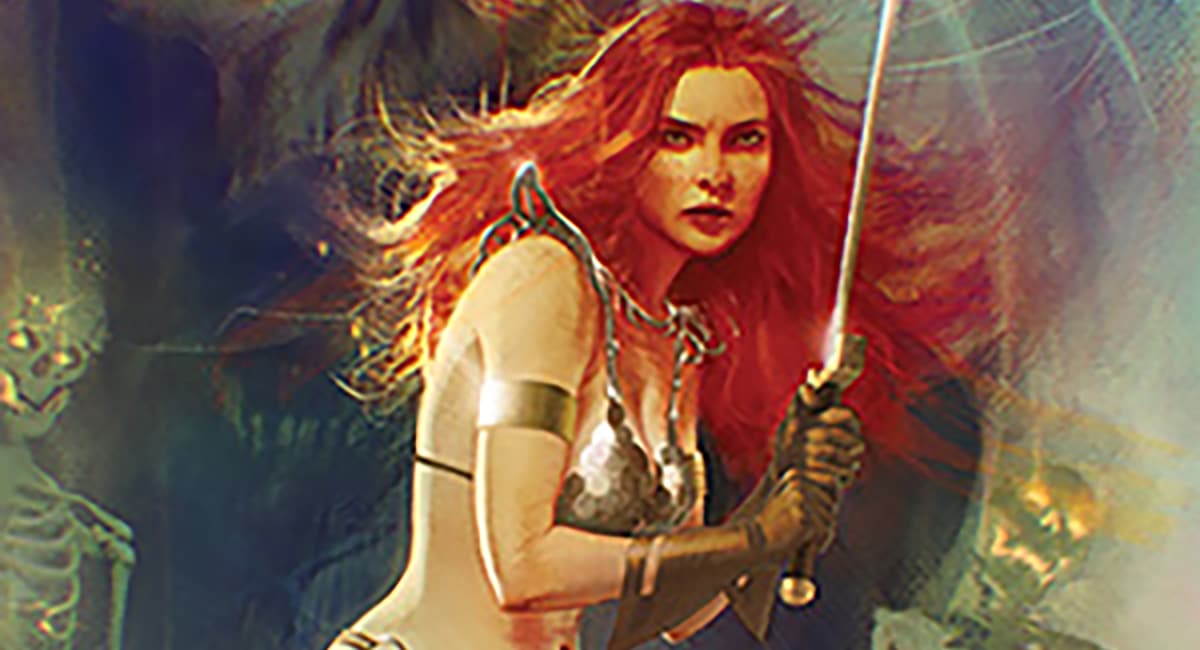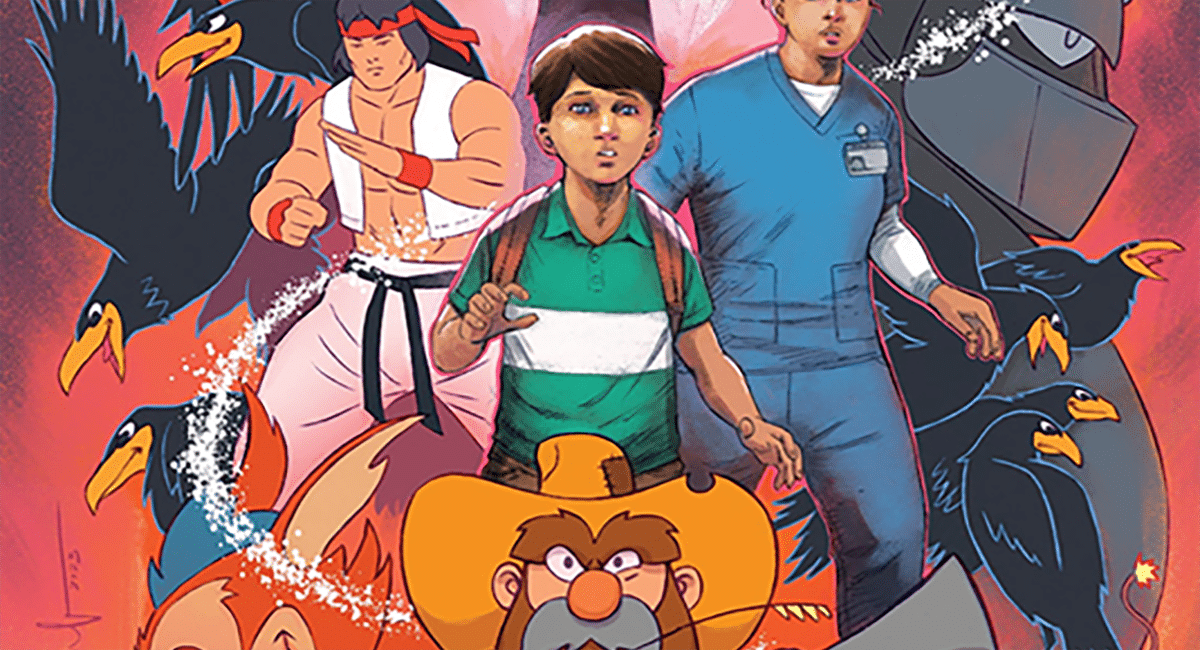by Zachary Clemente
Michael Cho is an illustrator, cartoonist, and writer currently residing in Toronto. He has worked with Marvel, DC, and others. His graphic novel, Shoplifter is out this September from Pantheon Books.
Comics Beat: How much is this story and these sort of emotions at this age [of the character] come from personal experience?
Michael Cho: It’s kind of hard to separate that. I think that almost all fiction is somewhat autobiographical. I didn’t go through this experience – I never worked at an ad agency and I don’t shoplift. But the emotions certainly come from that – part of the story is about being in your mid-20s and feeling like you’re sort of drifting and not going in the direction you want to get to your goals. I’m keenly aware of that because that’s what I felt like in my mid-20s – I was graduated from school, I went to art college, and I had a series of jobs but since I was outside of that structure of school where you’re told what to do, I was aware that what I wanted to do and what I was doing were two different things.
CB: I was under the impression, based on how personal the work feels, that you had worked in advertising before.
MC: No, but I am a freelance illustrator, so I’ve worked in and done assignments for advertising; and I know someone close to me who worked at an ad agency and a little bit of my inside knowledge of working in an agency comes from that. He went into the ad agency with the best of intentions and then when there was an economic downturn, their next account was cigarettes. I thought then “okay – this happens.”
CB: One of the things about Shoplifter I loved was your perspective on people in a city and your representation of advertisement in a city. Do you feel that comes from wanting to show ads as a large part of city life?
MC: Yeah, I think advertisement is ubiquitous and part of the theme of the book is the impact or influence of advertising in subtle and not so subtle ways. Whether it’s through social media or through [physical] ads, I was keenly aware when drawing it that I wanted to depict the advertising that permeates the city. Bus shelters, on the street, TV commercials – things like that; I wanted those things to be represented and be fully surrounding you at all times, so that was important for me to convey. Also, the city itself […] to be something of a character in the book; I wanted that city to be not just a background for the figures, but also to have scenes where the city itself is the character.
CB: Based on bits and pieces in the book and where you’re from, is this city Toronto?
MC: It’s based on Toronto because it’s grounded in what I know and it’s not a made-up world; Toronto is my hometown, so I tend to draw that. But it’s not actually Toronto – for instance the drawings of the subways are not Toronto subways.
CB: Those seem very New York.
MC: Yeah, they’re actually subways from Brooklyn. What it was for me is that it’s not meant to be a specific place; I never named the city – it’s meant to be any large city that that people gravitate to from smaller towns.
CB: The only way I could piece it together was during the airplane scene on TV – where the flight was coming from.
MC: That was a real event, actually. One of the reasons I included that was that I was watching broadcast coverage of an air crash that didn’t happen – it unfolded very much like it did in Shoplifter, I just changed a few bits around, but when I was watching it, all I could think was “Wow, this station really wants a disaster to happen.” Canadian media is always a little behind American media in the way it tries to sensationalize things, but in that case is it was one of those moments, and it was one of those things that had some parallels to the story.
CB: I got a sort of black and white depiction of social media in certain respects of our daily lives-
MC: In what way?
CB: Specifically in the club scene, there was a guy talking about how connected he is 24/7 and I feel that recently this is a very prevalent discussion – whether how social media affects us is “good or bad” and I feel a couple of the scenes spoke to me trying to say one or the other, but in the end I feel it said both.
MC: I definitely wasn’t trying to depict it as “bad” because I don’t think social media is bad, but I do think it has an impact and subtly influences the way we live our lives. There is a scene in there where one of the characters, says that as a result of social media, people are doing to their own lives what advertising does with products; they’re actually being pitchmen and marketers of their own lives, but that isn’t necessarily a negative. What I was trying to point out was that while we feel more connected to people, more than ever, there are moments where we are isolated, despite all this, and for all the connectivity we get – daily updates and awareness of others – people can still slip through the cracks and different kinds of walls get put up.
Vice versa, to flip that, with people whom we might not have any connection with at all, there might be surprising connections that we may not be aware of that exist – and that’s a part of Shoplifter.
CB: That’s very thoughtful. I feel those themes were successful, considering I brought my own notions of social media and how it’s treating in fiction to the work.
MC: Yeah, I wasn’t trying to show it as negative in anyway because I don’t think you can say that about any communication medium. It’s the communication itself that may be positive or negative – but the medium itself is neutral. It’s like saying movies are bad because this one movie sucked. That’s ridiculous – you can’t blame the film stock or the process for that.
CB: This is your first full sequential story to come out?
MC: Sort of. I’ve done shorter stories – I kind of straddle all aspects of comics. I’ve drawn mainstream comic stories for Marvel and smart art jobs for DC. Chip [Kidd] and I did a nice Batman: Black & White story featuring Batman and Superman and I’ve also painted covers. I’ve also written and illustrated shorter comic pieces of my own that are sort of similar to Shoplifter in the sense that they’re just fiction – not genre-based at all and I used to put out a webcomic once a month which started out pretty short but got bigger as I got more confident at it; going from an 4-page story, to an 8-page story, to 16-page story; and I’ve had those types of stories published in some unusual places. They’ve appeared in literary magazines in Canada, and Houghton-Mifflin put out an annual anthology called The Best American Comics for which I did a story about the making of the atomic bomb which was picked by Neil Gaiman for the 2010 edition. So I’ve drawn other comics, it’s just that they’ve been outside mainstream channels.
CB: Do you see Shoplifter as your entrance into a different part of your career – a different stage?
MC: I knew for a long time that I wanted to write and draw my own comics and graphic novels of the kind that influenced me when I was younger. In my teens, for example, when I felt like I was starting to drift away from comics, I discovered the Hernandez brothers [Jaime and Gilbert] and all the comics that came out from Fantagraphics in that era and I realized there was more to comics than I had originally thought. It opened up my mind to the idea of comics as a medium, not a genre. In some ways, I knew then that the comics I would write and draw would just be fiction and any stories I had intended to just write as prose could be comics instead.
Years later, when I was a freelance illustrator, I still knew that’s I wanted to go eventually. I wanted to be able to sign my name on a cover knowing that it was something I did completely from beginning to end myself. I set about putting together a few outlines of graphic novels I wanted to do, while also doing shorter stories, and Shoplifter was the first. There’s five somewhat interconnected stories that I want to work on as graphic novels over the next few years.
CB: Out of personal interest, when did you move from Korea?
MC: Oh, I moved here when I was about six and a half. I didn’t go to school in Korea, so my Korean is very poor; my mom and dad think I speak way better now just because I’ve started using the politeness terms. Are you Korean?
CB: On my mom’s side, yeah. She moved when she was 16 and has very fond memories of hanging out in little shops, reading until very late at night, when her father would pick her up, very upset.
MC: My vivid memories of Korea are drawing, giant robots mostly. In that era, there wasn’t much TV – it was all 6PM to 11PM, stuff like that. Since then it’s boomed and Korea’s now the high-tech capital of the world or something. I have very fond memories of that but I just never went to school there, so in some ways, English is kind of my first language. I’m in that 1.5 generation or whatever they call it.
I grew up in a town where there wasn’t as large an Asian community as Toronto, so I cultivated an “outsider” viewpoint on things and it’s been really helpful to me and I would never trade it for the world. It’s like there’s a Korean side of me and a Canadian side of me and I can relate to both, letting me see different sides of an issue; I’m very happy I have that ability.
CB: Thank you very much, Michael.
MC: Thank you.










Comments are closed.